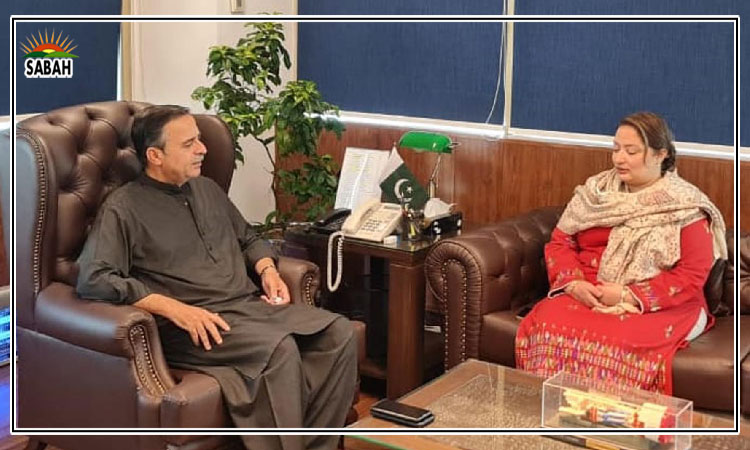Issue of refugees…Aizaz Ahmad Chaudhry
HUNDREDS of thousands of undocumented Afghan refugees are returning to their country. In principle, it makes perfect sense. No country allows illegal foreign nationals to stay on its land. Pakistan, too, has that right. Notably, at this stage, only undocumented refugees are being obliged to return home. The caretaker interior minister said in a Senate hearing that the government would want the return of refugees to proceed without any manhandling, and with immediate redressal of complaints.
However, since this forced return has coincided with the steep rise of terrorism in Pakistan, a correlation has developed in the public consciousness that the expulsion of Afghan refugees is Pakistans answer to the Taliban governments non-cooperation on the issue of the TTP, which is carrying out terrorist acts against Pakistan. This perception needs to be addressed.
There is a view that Afghan refugees were victims of foreign aggression and oppression. Some would even suggest that Afghan refugees have lived in Pakistan long enough to be deemed economic migrants. As it is, many of those returning now might come back to Pakistan in the near future because there is no real economic pull for them to settle in Afghanistan. Hence the need to talk to Kabul for creating pull factors, such as offering land.
Amidst this diversity of views, the debate has begun to affect the overall trajectory of Pak-Afghan ties. Pakistanis wonder why the Taliban government is not sensitive to Pakistans high concern about TTP-sponsored terrorism. The answer lies in recognising the fact that the Taliban of Afghanistan and the Taliban of Pakistan are two sides of the same ideological coin. Both derive their inspiration from the founder of the Taliban movement. The TTP helped the Afghan Taliban during the latters fight with Americans. The Afghan Taliban are returning the favour.
The debate has begun to affect the overall trajectory of Pak-Afghan ties.
Further, the TTP wants to do what the Afghan Taliban would welcome: establish an Islamic emirate in the tribal belt straddling the Pak-Afghan border. It is clear that the Afghan Taliban are unlikely to take any kinetic action against the TTP on their soil. It is worth recalling how their first government defended the Al Qaeda leaders right to stay in Afghanistan despite intense US pressure.
Given these realities, our government needs to adopt a two-pronged approach. Politically, Islamabad should sustain its efforts to persuade Kabul to not allow the TTP to plan attacks against Pakistan using Afghan soil. Kinetically, this is a fight that Pakistan will have to win on its own, as it did in Swat and Waziristan. The perception of the forced return of refugees being tit-for-tat action could have serious implications and cause an open rift with Kabul.
Let us also address a related question that is being asked, ie, why the Afghans are not grateful to Pakistan for all that was done for them in the past four decades. Indeed, Pakistan had helped Afghans push out the Soviet forces and also gave them humanitarian access during the US-led war on terror. Despite US pressure, Pakistan never took kinetic action against the Afghan Taliban leadership that often visited Pakistan to meet their families and receive medical treatment. Consequently, Washington accused us of playing good Taliban (Afghan), bad Taliban (Pakistani), meaning a double game.
In hindsight, when the US started a dialogue with the Taliban and managed to obtain some written commitments from them in return for withdrawing its troops in 2021, should Pakistan not have opened its own dialogue with the Taliban on how they should deal with the issues of TTP, border management, and the return of refugees, if and when they returned to power? They were under immense pressure and would have been more amenable to talks then rather than now when they are in power and unchallenged by any internal faction.
Yet, we must stay engaged with them on the diplomatic and political tracks for candid discussions on the bilateral issues mentioned. If we are to learn from history, all such matters should be discussed in Pakistans parliament. A diversity of views enriches debate and helps generate sound and consensual policy decisions.
The Afghans tend to view their country as the economic roundabout that could connect West and Central Asia with South Asia. They cite a verse of Allama Iqbal, which characterised Afghanistan as the heart of Asia. This provides an enormous win-win foundation for both countries to work together on regional energy projects and transit trade. This will help make mutually beneficial economic projects the centrepiece of Islamabads relations with Kabul, in tandem with Pakistans pivot to geo-economics espoused in our first National Security Policy 2022.
Courtesy Dawn












